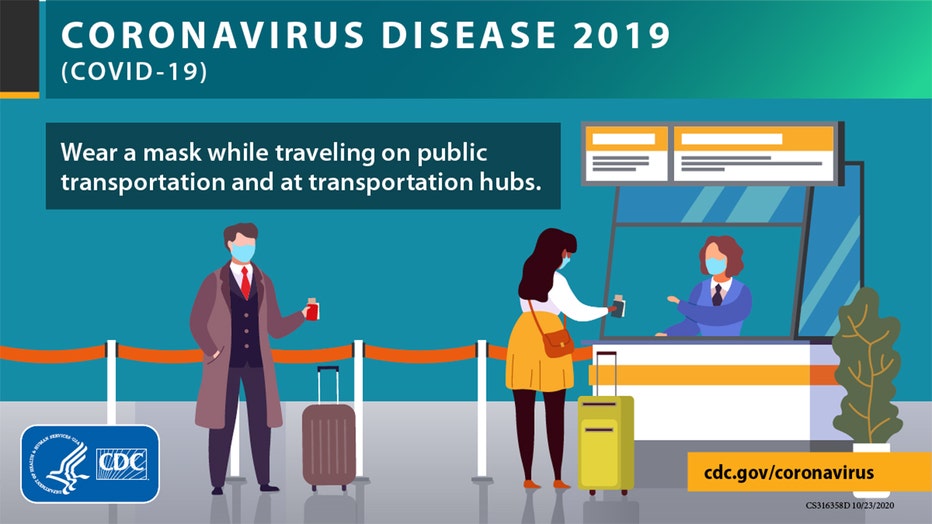CDC urges Americans to continue to avoid traveling
NEW YORK - As COVID-19 cases and hospitalizations fall around the country, the U.S. Centers for Disease Control and Prevention continues to urge Americans to avoid unnecessary travel, dining out, and other social activities that can lead to more spread of the virus.
"We have yet to control this pandemic," Dr. Rochelle Walensky, the director of the CDC, told reporters on Monday.
The nation is coming down from the wave of infections that began in November and crested in January, but Walensky said the background level of cases remains dangerously high.
"COVID-19 cases, hospitalizations, and deaths are extremely high across the United States," CDC states on its website. "Wear a mask, stay at least 6 feet/2 meters apart, avoid crowds, and wash your hands often."
The CDC recommends avoiding travel because it increases a person's chance of getting and spreading COVID-19.
"Delay travel and stay home to protect yourself and others from COVID-19," CDC guidance states. "You and your travel companions (including children) may feel well and not have any symptoms, but you can still spread COVID-19 to family, friends, and community during and after travel."
U.S. cases of COVID-19 surged after domestic travel increased over holidays in November and December. Holidays in the next few weeks include Lunar New Year, Valentine's Day, and Presidents Day.
In January, CDC issued an order requiring all air passengers arriving in the United States from another country to get tested for COVID-19 no more than three days before their flight departs and to show either the negative result or documentation of having recovered from COVID-19 to the airline before getting on the plane. This order applies to all travelers — including U.S. citizens and permanent U.S. residents.
With The Associated Press
Get breaking news alerts in the FOX 5 NY News app. Download for FREE!
CDC GUIDANCE: IF YOU MUST TRAVEL
If you must travel, take these steps to protect yourself and others from COVID-19:
- If you are eligible, get fully vaccinated for COVID-19. Wait 2 weeks after getting your second vaccine dose to travel—it takes time for your body to build protection after any vaccination.
- Get tested with a viral test 1-3 days before you travel. Keep a copy of your test results with you during travel in case you are asked for them. Do NOT travel if you test positive.
- Check travel restrictions before you go.
- Wear a mask over your nose and mouth when in public settings. Masks are required on planes, buses, trains, and other forms of public transportation traveling into, within, or out of the United States and in U.S. transportation hubs such as airports and stations.
- Avoid crowds and stay at least 6 feet/2 meters (about 2 arm lengths) from anyone who did not travel with you. It’s important to do this everywhere — both indoors and outdoors.
- Wash your hands often or use hand sanitizer (with at least 60% alcohol).
- Bring extra supplies, such as masks and hand sanitizer.
- Avoid contact with anyone who is sick.
- Avoid touching your eyes, nose, and mouth.
Do NOT travel if you were exposed to COVID-19, you are sick or you test positive for COVID-19. Learn when it is safe for you to travel. Don't travel with someone who is sick.
Source: CDC.gov

CDC infographic advocating the wearing of a mask while traveling. (Via CDC.gov)

